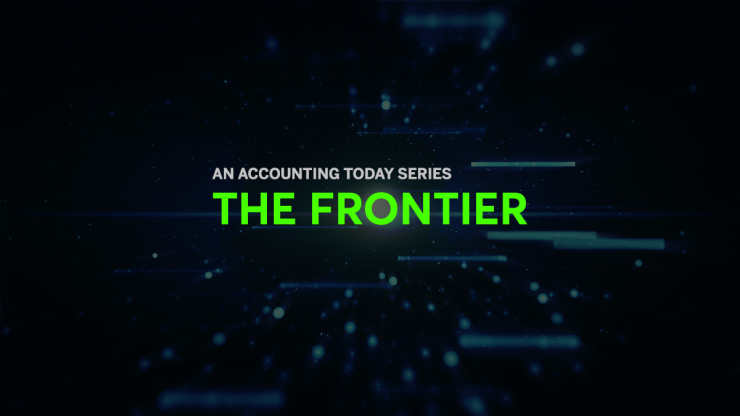News about cryptocurrency and blockchain is practically ubiquitous today, to the point where one might think old-fashioned sovereign money is all but dead. Yet while accounting thought leaders generally agree that crypto and blockchain (the technology that underlies cryptocurrencies) hold much promise for the profession, it remains unclear as far as how they can benefit the accountants specifically.
David Cieslak, executive vice president and chief cloud officer of RKL eSolutions, noted that, when it comes to blockchain at least, accountants are still struggling to figure out what to even do with it, let alone implementing it at their firms. The profession, he said, is still looking for uses beyond just mining cryptocurrency; while there is some innovation, he believes it’s “still largely not anything at scale.”
“It’s basically a database in the cloud, in its most straightforward form, and the applications, the things we can do with blockchain are going to be pretty tremendous, but I think that we’re still looking for compelling use cases. So it’s like anything else: That’s the platform, the tool, the method, but what problem are we going to solve with that?” he asked.
Donny Shimamoto, founder and senior member of the IntrapriseTechKnowlogies’ consulting and management team, had a similar view, noting that while blockchain is doing impressive things in a lot of areas, accounting is not yet one of them.
“I think there is huge value in what we’re seeing as far as its impact on the supply chain and traceability [of assets], there’s a lot going on there. But from the actual ability to change accounting or the way we do accounting, that is being oversold,” he said.
Joe Woodard, who runs Woodard Events and the Scaling New Heights conference, has a similar view towards cryptocurrency itself: Despite progress in taming the notoriously unruly asset class, it remains the “Wild West” and so accountants should be treating it with caution. Like Cieslak’s view towards blockchain, though, Woodard’s concerns stem not from the concept of digital currency but its current implementations. While he believes the technology is still immature, as time goes on there will be new cryptoassets that will address the problems of the current crop.
“I’m not anti-crypto, but I think what we’re looking at here is, as with all first manifestations, an immature market … that will, over time, like all new technologies, mature. But what’s missing from crypto now is the basis of its value. The only basis now is scarcity; it lacks government backing, it lacks asset backing, it lacks even stock portfolio backing. It lacks a concrete sense of worth, which is why we see it oscillate so badly. So crypto by its nature is not the problem, it’s Bitcoin and its iterations like Etherium that are the problem,” he said.
He pointed to recent efforts by governments to develop digital currencies of their own, as well as large corporations issuing their own tokens; once enough mature players are in the space, Woodard said he would be much less concerned.
Shimamoto shared similar thoughts, saying that so much of the market in these assets is largely speculative, not having much value basis besides people’s desire to own them. Compounding this problem is the fact that, in his view, most people don’t fully understand what it is they’re buying.
“I don’t believe the average consumer understands the risks they are taking on when investing in them — let alone the tax implications, since these are treated as capital gains and losses with each transaction performed,” he said.
Waiting on the tools
Woodard added that there are also issues with the accounting tech infrastructure. While there have been crypto-specific solutions released over the last few years, he said the larger players still aren’t prepared to address digital currencies at the same level as they address sovereign currency.
“The way firms manage their clients’ use of crypto is still the Wild West. Schedule D applications, bookkeeper implications — I don’t think corporations like Intuit or Xero are close to being able to manage that through their bank matching tools like they can with traditional currencies, so we’re still a little untamed,” he said.
Shimamoto added that software developers are also not entirely able to address internal controls when dealing with blockchain either. Finally doing so, he said, would mean a massive effort on the part of developers, and so he doesn’t believe it will happen soon.
“A lot of the internal controls built into existing ERP systems, they simply won’t be transferred into the blockchain. Others have said how blockchain will replace accounting systems, but that won’t happen. I don’t think the level of effort to reprogram all those controls onto the blockchain, I don’t think there is enough of a benefit for that call yet,” he said.
Cieslak said that blockchain, and by extension cryptocurrencies, will be most successful, paradoxically, when people aren’t really talking about them anymore.
“The best days, from a blockchain perspective, will be the days we’re no longer talking about blockchain … . Where it starts to become more mainstream, more commonplace, where we’re no longer talking about the technology but leveraging it to really solve for X kind of things, I’m looking forward to that,” he said.
This story is part of an Accounting Today series called “The Frontier,” where we explore the cutting edge of accounting technology through conversations with thought leaders across the country, who will share with us their observations, hopes, concerns and even a few predictions here and there. We’ll see you at the Frontier.
See the rest of





